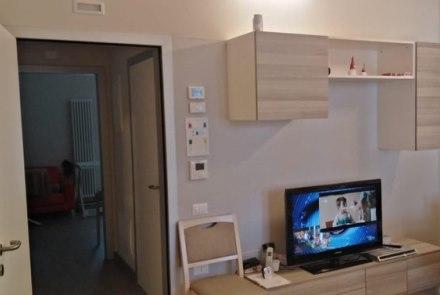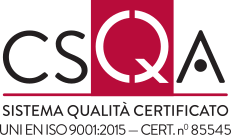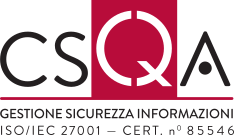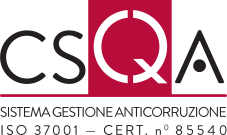
The Home Care Residence "R. Rossi" in Novi (Modena) is managed by the Public Personal Service Agency (ASP) "Terre d'Argine" and houses 14 elderly residents, mostly women, in self-sufficient apartments. At the urging of the Union Terre d'Argine and the Municipality, Lepida has organized a test within the domain of Internet of Things (IoT), aimed at experimenting solutions that combine home care and safety for the frail.
In the apartments motion sensors have been placed, capable of detecting the passage and the duration of stay of a person in a room, together with an environmental sensor to monitor the temperature, humidity and lighting level: the detection of these parameters is intended to constantly monitor the welfare conditions of guests and report any anomalies or critical issues. All data collected by the sensors are then transmitted to the SensorNet platform through Lepida's regional IoT network, which allows geolocation without the use of a GPS system, operating at low power consumption and long range with encrypted data. The information is then processed by an application for PCs and smartphones, developed by non-profit organization AIAS Bologna - partner in the project - and customized in collaboration with Lepida. The dashboard presents the data to the operators in an immediate and intuitive way (colored smileys highlighting the different statuses: green - all good, yellow - attention, red - potential criticality) allowing them to immediately detect situations that require intervention. It is important to note that the different phases of the dashboard development have involved the operators from the beginning, including their considerations and needs. Continuous monitoring of these simple parameters makes it possible to verify that the guests lead a regular life, moving during the day and resting at night, in a comfortable environment, correctly lit and conditioned, at different times of the day. Any detection of lack of movement during the day or vice versa, frequent movement or prolonged light levels during the night, may be irregular conditions and as such are reported to the operators who assess the relevance and decide on any intervention. In addition to the analysis of daily data, which support the operators in the organization of daily interventions, the evaluation in the medium and long term and the comparison of data collected over a period of time can reveal variations in behavior that require specific intervention, before they become critical.
The project and the results have been presented to the two regional Assessors of reference, with a very positive reception. Experiences of this kind shall be repeated and extended because home care is at the basis of the idea of care in our Region: in both social and health care, sensors and monitoring services are among the primary areas of development of the new Digital Agenda, "Data Valley Common Good".



